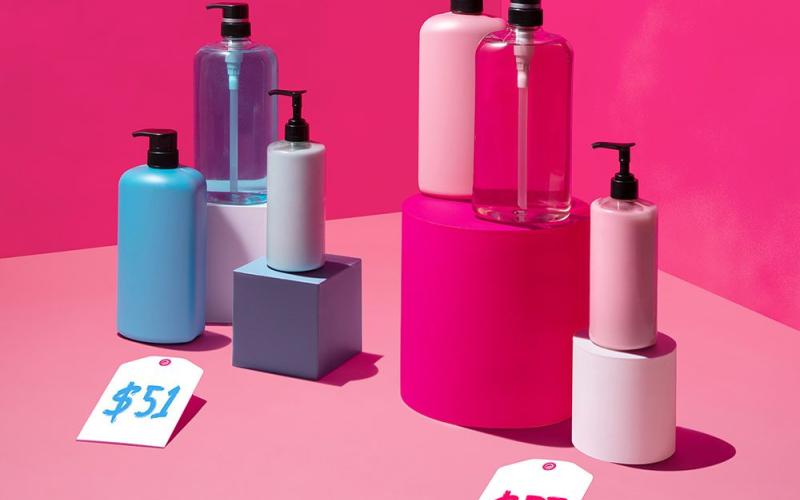كيف وليش: الضريبة الوردية وأثرها على النساء

الحلقة الأولى من برنامج #كيف_وليش - الموسم الرابع
عنوان الحلقة : الضريبة الوردية وأثرها على النساء
الضيفة : فنن الشلبي - صحافية وناشطة حقوقية
Keif wa Leish/ How and Why
Directed and presented by Hadeel AlSaabi
Special guest: Fanan AlShelabi – Journalist and Rights Activist.
They begin their conversation with an introduction to the topic in the context of the wider world. They define the ‘Pink Tax’ as the increased price on products marketed to women or girls compared to their male counterparts and the way companies use colours or design to justify the up-charge on these products and exploit the female market. While the law states that medical supplies and medicines are exempt from tax, menstrual products are not considered as part of this exception.
They go on to discuss ‘Period Poverty’ and the way it affects women specifically, as essentials such as sanitary pads, underwear, painkillers, and other products are necessities for anyone who menstruates and thus an unavoidable financial burden, which companies can purposely exploit.
They speak more widely about the social pressures that influence the consumption habits of women, such as pressure to buy clothes or makeup for aesthetic purposes. They raise questions about whether this tax is justifiable due to supply and demand and whether this is something that intentionally burdens women.
In the context of Jordan, they mention the double standard of free condoms being available at health centres and the health issues that arise as a result of period poverty and .the inaccessibility of sanitary products
The ‘Pink Tax’ and period poverty intersect as part of a wider societal issue of the lack of considerations made for women in public spaces, such as at school and at work. The lack of available bathrooms, particularly in rural areas and the agricultural sector, and the inability to afford menstrual products means that many women and girls are forced to miss school or work because of their periods
The obscurity of the manufacturing practices used by companies that sell sanitary products means that it is harder to investigate from a health standpoint. However, while it seems like this should be a major public health issue, AlShelabi points out that it is still difficult for activists to pressure for change to the laws surrounding the selling of period products, as because of their necessity and inherent consumer base, boycotts are impossible to enact.
Due to this, she emphasises the importance of removing the shame attached to the issue and making it a fore-frontal conversation in society, as well as making affordable menstrual products an essential aspect of economic modernisation.
They discuss the lack of medical research on women’s bodies and how this societal lack of knowledge hinders social engagement with this issue.
Finally, AlShelabi outlines what she considers the most prominent obstacles that prevent the business sector and society from integrating gender equality into marketing and
.tax policies. The main ones being the culture of shame around menstruation and the consideration of sanitary products as luxury items rather than medical necessities
Translator:Edie Elliott













































